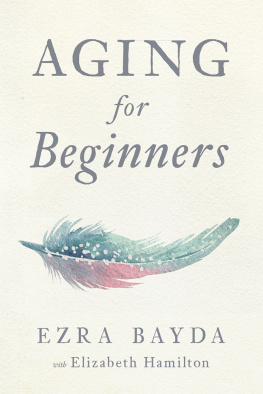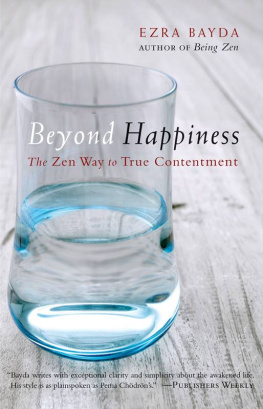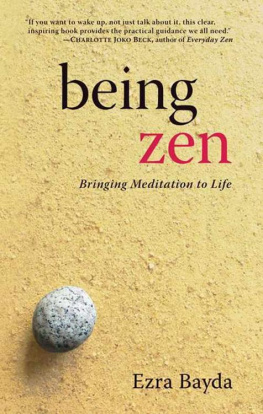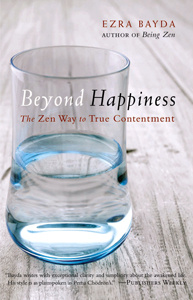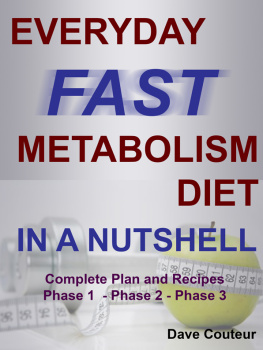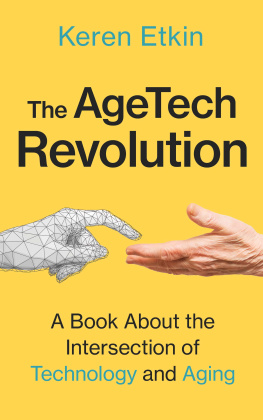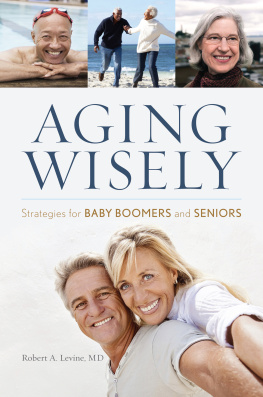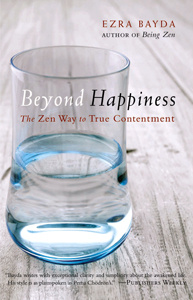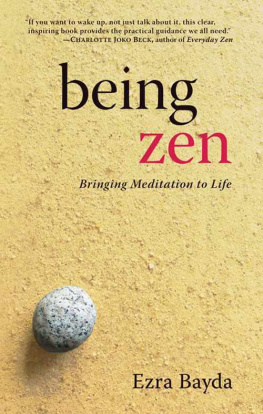
To all of the starving and suffering children throughout the world, with the wish that they may someday have the opportunity to experience the life of a contented geriatric
Preface
M Y SPIRITUAL SEARCH began when I was twenty, out of trying to make sense of my constant feeling of anxiety and confusiona state I later came to call the anxious quiver of being. My initial attempts, mainly reading and journaling, gave me a degree of intellectual understanding, but did little to relieve the anxiety. Then, in 1970, at age twenty-six, I started a daily meditation practicebeginning in earnest with a disciplined approach to the path of self-discovery. I was truly a beginner, with both a seriousness of purpose and an open curiosity to learn whatever I could. Now, after over forty-eight years of practice, and despite experiencing and learning a great deal, I find I am once again a beginner. Older age, and particularly the challenges of an aging body, have made it clear that there is still a lot to learn. The truth is, were all beginners when it comes to the process of aging.
The idea of writing this book arose several years ago shortly after I developed kidney cancer and related complicationsbut I felt that I couldnt write it until I had more clarity. As a beginner in the process of aging I felt that I didnt have a broad enough perspective, and that my words therefore wouldnt be helpful to anyone. But when I talked to Josh Bartok, my friend and editor, he reminded me of something that I had forgotten: that just communicating about my own struggle is something that might be helpful to those dealing with their own similar struggles. So as I observed and worked with my own experiences, as frustrating as they sometimes were, and as I began to put down the words, I found that articulating my struggle forced me to clarify itfor myself, and hopefully for others. It also helped me to find some of the perspective that had previously eluded me. The experience of writing this book, especially repeatedly working through the various techniques and practices, has been invaluable to me.
Much has been written about aging in recent yearswhich isnt surprising, given that the percentage of people in the United States over the age of sixty-five has risen to a historical high of 15 percent. But aging doesnt begin when were sixty-five. The experience of aging is very much based on our perception. When were twenty, thirty may look to us like seventy. When were forty, the thought of being sixty-five may seem as if life will be essentially over. And then, when were sixty-five or seventy-five, we may still feel inwardly like were in our forties. The point is, we can feel old at any time along our life process. When serious illness or incapacity strikes, for instance, or when we lose someone, we may understand, at least temporarily, the fact that we dont have endless time. And those with chronic pain, regardless of their age, may wake up each morning feeling the burden of having to face another day.
Its often said that the process of a human life can be described as diapers to diapers. Another frequent quip is that aging is not for wimps. Philip Roth put it even more emphatically when he wrote: Old age is not a battle. Its a massacre. These three comments are humorous, sure, but also a testament to the fact that getting older can be an experience that is often difficult to navigate. This is not to say that we cant live with vigor and vitality into our sixties and seventies and perhaps beyond, and of course, we may still live happy and meaningful lives. And many articles promote a can-do attitudeputting an emphasis on staying physically fit, socially active, and engaged in everyday activities. All of these things may indeed be helpful and goodyet we also have to recognize that sometimes these things may not be possible, and even when they are, they may not be enough. Sometimes the realities of aging may present difficulties that nothing in our life has truly prepared us for.
The majority of this book will address the difficulties in aging that exercise, social contact, and meaningful activities alone cannot address. Moreover, there are times when a can-do attitude may in fact be counterproductive; fighting to change the things we cannot change is never helpfulsuch things as the loss of our strength and physical abilities, the loss of our friends, the objective fact that we will one day surely die. But learning to relate to these objective difficulties in a new way is both possible and meaningful.
Perhaps we can start by asking this: what makes getting older so potentially difficult? Certainly, as part of the menu of aging, there will be loss and the grief that follows itgrief not just for the loss of loved ones, but also for the loss of our youth, our health, our appearance, and our feelings of significance. For some there will be loneliness and helplessness. Often, there may be anxiety and depression, especially around the uncertainty of what the future will bring. Many feel the world is changing so fast, especially technologically, that they feel left behind. For all, there will probably be some degree of pain and an increasing sense of the finality of death.
But the menu of aging has a second page, an additional section: Possibility. There is possibility because people are now living longer than ever beforefrom ten to twenty years longer than our grandparents. Being older no longer means that we are necessarily sick and incapacitatedor that we have to withdraw from active pursuits. For some, old age may be a new stage of lifea stage of renewalin which our inner life can be experienced as being of equal importance with our outer life. This gives us the possibility of understanding what this life is really about, including our place within it.
Theres the possibility that we can understand, on the deepest level, that the gradual breaking down of the body is to be expected as part of the natural order of things. And then, when it happens, instead of fighting it, theres the possibility of learning to accept it with equanimity, realizing that our new difficulties dont mean that our life is now over. And then, in between the periods of difficulty or pain, we may have increased appreciation for what is actually present and be better able embrace the everyday treasures of being alive.
Although aging can certainly be difficult, it can also be a surprisingly rewarding period of our life. Accordingly, a good portion of this book will explore how we can use our aging to enhance the quality of our daily living. Unfortunately, though, there are no foolproof formulas or simple guidelines for navigating the aging process. No matter what we read or learn about how to cope with aging, the actual experience for ourselves will much more likely be a gradual back-and-forth process of confusion and insight.
One of the sources of suffering in aging arises if we take on the identity of an old person or a sick personand then start to see our environment as a source of danger rather than fulfillment. If we start to look at everything solely in terms of how we can cope, our life becomes very narrow. And yet, while we certainly dont want to fall into such a dark place, at the same time it is necessary to honestly acknowledge that we are, in fact, getting older or losing our good health or perhaps some of our abilities to cope as we once did. To meet this skillfully, we have to give up pretending that we are the same person we were when we were younger and healthier. At some point we may even realize the value of acknowledging the fact that we will die, even though we have no idea when that will be. This acknowledgment doesnt have to be morbid or a lament; in fact, with the clarity that our life will someday surely end, we may experience the sense of lightness that comes when we no longer identify so strongly with our bodies. This is a fine line we need to learn how to walkaccepting we are older or unwell, without assuming that this is
Next page
